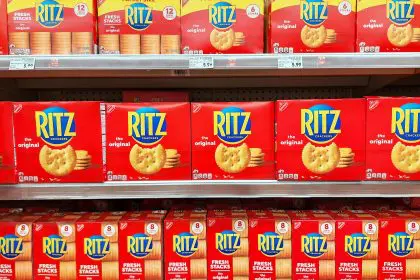In the intricate world of food safety, seemingly innocent products can harbor hidden dangers that threaten public health. The recent soft cheese recall unveils a critical narrative of bacterial contamination that demands immediate attention and understanding. This recall is more than a simple product removal; it’s a vital step designed to safeguard consumer health against potentially life-threatening bacterial risks.
The anatomy of a food safety crisis
Bacterial contamination poses significant challenges in food production and consumption. A startling discovery in popular cheese brands has sparked immediate action from major retailers including Aldi and Market Basket. Medical professionals are alerting Americans about Listeria monocytogenes, an unusually resilient bacteria found in several beloved soft cheese products that can survive even in refrigerated conditions.
Why this recall has medical professionals concerned
Unlike common bacteria, Listeria presents a unique challenge that sets this recall apart. This microscopic organism thrives in cold environments where other bacteria typically die, making it particularly concerning for refrigerated foods like the affected soft cheeses. Each year, this sneaky bacteria affects approximately 1,600 Americans, with devastating consequences for about 260 individuals.
The unexpected victims
While anyone can be affected by contaminated food, certain groups face particularly severe risks. Pregnant women encounter unique dangers, as this bacteria can lead to serious complications for both mother and child. Older adults and those with weakened immune systems also face heightened risks, making awareness crucial for families caring for vulnerable members.
Inside your refrigerator: The products to check immediately
The recall includes several popular cheese varieties found in homes across America: From Aldi’s shelves, the Emporium Selection Brie stands out among affected products. La Bonne Vie’s Brie and Camembert varieties have also been flagged, along with Market Basket Brie and Supreme Oval selections.
Understanding the warning signs
The initial symptoms often masquerade as common ailments – fever, muscle aches, and fatigue might be dismissed as simple flu symptoms. However, this deceptive start can progress to more serious conditions, particularly in vulnerable individuals. Medical professionals emphasize that early recognition and response remain crucial for effective treatment.
The science behind the spread
This bacteria’s remarkable survival abilities make it particularly challenging to control. It forms protective shields called biofilms that help it persist in food processing environments, explaining why conventional cleaning methods sometimes fall short in preventing contamination.
Taking action to protect your family
Food safety professionals recommend immediate inspection of refrigerators for these products. Beyond simply discarding affected items, they emphasize the importance of thoroughly cleaning any surfaces or containers that may have contacted these products to prevent cross-contamination.
Beyond the immediate crisis
This recall highlights broader concerns about food safety in American homes. The incident serves as a reminder about the importance of proper food handling and storage practices, particularly for foods that seem safely preserved in refrigerators.
When refrigeration isn’t enough
The discovery that cold temperatures don’t stop this bacteria challenges common assumptions about food safety. This revelation has sparked discussions among food safety experts about the need for enhanced protection measures in food processing and storage.
Looking forward
As investigations continue, food safety professionals are examining ways to strengthen protection against similar incidents. Their findings may reshape how Americans think about food safety in their homes.
The role of consumer awareness
While manufacturers and retailers work to ensure product safety, informed consumers play a crucial role in protecting their families. Understanding these risks helps Americans make safer choices about food purchase, storage, and consumption.
Building better safety systems
This incident has prompted discussions about improving food safety measures across the industry. From enhanced testing protocols to more rigorous cleaning procedures, experts are exploring multiple approaches to prevent similar situations.
The path to prevention
Food safety professionals emphasize that while recalls like this one cause immediate concern, they also provide valuable lessons for preventing future incidents. These experiences help shape stronger safety protocols and more effective response systems.
This cheese recall serves as a crucial reminder that food safety requires constant vigilance. By staying informed and taking appropriate precautions, Americans can better protect themselves and their families from similar health risks while enjoying their favorite foods with greater confidence.















